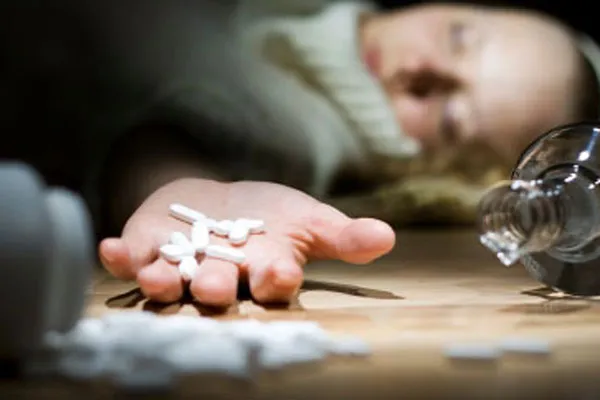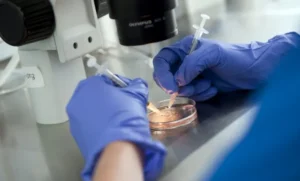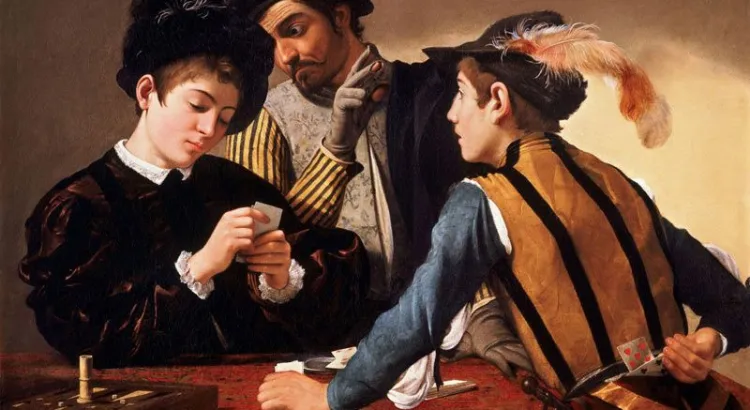Question:
How must one help a son who consumes drugs?
Answer:
No one doubts that one of the contemporary dramas is the problem of drug addiction at all levels: children, youth, adults and the elderly.
Drug abuse is the most serious pandemic in the world today. It is one of the main causes of many:
- Broken marriages
- Failure in studies
- Job layoffs
- Unemployment
- Economic ruin
- Juvenile delinquency
- Prostitution of children, adults and young people
- Acts of violence
- Mental illness
- AIDS and other diseases
- AIDS and other diseases
- Etc…
THE PHENOMENON OF DRUG ADDICTION
Let us look at some general ideas.
1.1. The Drug User
Among the various drug users, we must distinguish between different classes:
- The occasional user: this is the one who consumes drugs sporadically and exceptionally.
- The habitual consumer: is the one who consumes repeatedly, but maintains sufficient control of both the frequency and the doses; his life in society is practically normal.
- The drug dependent: this is the person who has become dependent on the drug; drug use becomes compulsive and in some cases can lead to withdrawal syndrome.
- The drug addict: is the subject whose dependence on drugs is such that he lives only for them; he resorts to any means to obtain them; all other interests (personal, family, social) disappear for him; he loses all moral values.
1.2. Dependence
A distinction must also be made between the types of dependence in which a consumer may find himself. There are basically two: habituation and dependence itself.
- Habituation is the state produced by the repeated use of a medicinal (or other substance) and is characterized: by the tendency to persevere in the use of a certain product because of the sensations of well-being it provokes; by a slight tendency to increase the dose; by a certain degree of psychic dependence, but not physical; finally, because the effects are only adverse for the person who consumes.
- Dependence, on the other hand, is the state of periodic or chronic intoxication resulting from the repeated use of a medicine or other substance. It is characterized: by the irresistible desire (compulsion) to take the product permanently and to obtain it at any cost; by the tendency to increase the dose; by dependence not only psychic but also physical; and, finally, because the effects are adverse both for the person in question and for society. This dependence, in turn, is considered only psychic: when the psychic satisfaction pushes the individual to abuse the substance that produces it; or even physical: when the suspension or limitation of the drug produces a series of disturbances that is called ‘withdrawal syndrome’, when the disturbances reach stomach cramps, nausea, diarrhea, convulsions and even coma.
1.3. Social Problems Favoring Drug Consumption
Our contemporary society has created the conditions for the phenomenon of drug addiction to be considered practically a ‘culture’ (or better ‘subculture’); because, in fact, drug addiction is placed in a harmonizable line with other manifestations typical of our time, such as:
- The continuous search for pleasure
- Hedonism in all its aspects
- Intolerance in the face of pain and frustration
- Lack of values
- Consumer materialism
- Immaturity, which is increasingly frequent in adults
- Disintegration of the family nucleus
These types of characteristics of our end of the century have created a state of emptiness, frivolity and psychological fatigue such that the spiritual survival instinct desperately seeks alternative ways out. It is very significant that the World Health Organization has indicated as reasons for starting to consume some ‘soft’ drugs (such as marijuana): curiosity for the effects and sensations produced by drugs, to obtain the satisfaction of belonging to a group and being accepted by its members, to show independence or also hostility, to have new experiences, pleasant or dangerous (the attraction for risky situations), to acquire a greater creative capacity, to enter more easily into a state of sleep or ecstasy, to escape from some problem.
1.4. Main Effects of Drugs
Drugs cause terrible effects on their victims. Many are totally unpredictable; but among the most common we can indicate:
- Modifications in the personality structure: they degrade the person, the notion of moral values is lost, cultural and professional interests are progressively lost, all capacity to give and receive affection disappears (others cease to be of interest except if they are useful to obtain more drugs), lying becomes habitual behavior, the sense of responsibility is lost, the meaning of life is lost.
- Changes in family behavior: children isolate themselves from their parents (for example, they live locked in their rooms or relate only with closed groups of friends), they become irritable, there is a progressive loss of respect for their parents.
- Alterations in the school and work environment: loss of the sense of study and work, decrease in performance, abandonment of these activities.
- Social alterations: delinquency and prostitution to obtain money or because of the environment in which it is handled, suicidal behaviors (it is estimated that 1 out of every 25 alcoholics attempts suicide at least once in life; this is more acute in the case of chemical drugs).
- Physical problems: arthritis, liver cirrhosis, depression, malnutrition, encephalopathies, herpes, hepatitis B, AIDS, syphilis, tuberculosis, etc…
2. PARENTS AND THEIR DRUG-ADDICTED CHILDREN.
There is no doubt that this threat weighs with anguish on the hearts of many parents who have children who have already started using drugs or who fear that their children will enter this impasse. What can they do when their children are on drugs and what can they do to prevent those who have not yet embarked on this path from becoming drug addicts? Here are a few tips for guidance.
2.1. When Parents Discover that a Child is Using Drugs.
Sometimes it can be very difficult for parents to deal with the problem, as children will often deny the reality by all means. They have no difficulty lying: it is part of the mentality that drug dependence creates in them. However, when there are suspicions, it cannot be long before the parents reach the evidence that they do or do not have a drug-addicted child. At that point, what to do?
First of all, it is very important that the family atmosphere be as calm as possible, avoiding hostile behavior on the part of the parents. It is not advisable to start with recriminations, accusations, complaints and criticisms. This only tends to lead to reciprocal hostility on the part of the child.
Parents need to have a serious conversation with the child, making the child trust the parents and not fear them. This does not mean that they should have a tolerant attitude towards drugs. On the contrary, understanding does not have to be accompanied by the least permissiveness. They have to be very understanding with the person, but drastic about the need not to use drugs again.
It is of great importance that the child becomes aware of the seriousness of his problem for him and for others, and of the consequences that may arise in the future if he does not change.
What is the best way to help him? In order to avoid, as quickly as possible, the long series of consequences for him, it is advisable to explain to him the possible evolution of the process in which he is involved. It is best that the child assumes that the problem is his own. Parents can only facilitate the means to achieve an adequate rehabilitation, they can help and support him; but above all it is necessary that the drug addict himself makes the personal decision to abandon drugs.
We have to keep in mind that in the drug addict there is a feeling of helplessness and failure, feelings of guilt and frustration. All these things lead him/her to think that the problem is hopeless. That is why depressions are frequent, accompanied in many cases with suicide attempts.
In these cases, the parental work is very important, trying to stimulate him/her to persevere in the fight. Also, one of the most common consequences of drug addiction is the inability to appreciate life. Life seems to lack interest. This causes drug addicts to feel a deep inner emptiness. Parents need to help them return to enjoying the rewarding aspects of life. With an affectionate climate in the family, and above all by speaking to the children about God. The drug addict has to look for in God what he looks for in drugs. He has to fill his spiritual emptiness with the love of God. In this case, the best help that can be given to him is to bring him closer to the Church.
Finally, the most important thing is not to lose hope in God. When we are faced with problems that seem impossible, we must say: nothing is impossible for God (Lk 1:37). The greatest danger for children is certainly the despair of their parents.
2.2. What Should Parents do to Prevent Drug Addiction in their Children?
What to do so that children do not seek drugs? How can they be protected?
First, we must remember that the best protection is a good family atmosphere. We must avoid some things that predispose, directly or indirectly, to drug use. For example:
- Lack of dedication of sufficient time on the part of parents.
- Maltreatment
- Separations and divorces
- Parental alcoholism
- Excessive interest in obtaining money and talking only or almost exclusively about money and material problems – especially the absence of religious practices in the family.
- Especially the absence of religious practices in the family.
Second, parents have to offer their children environments in which drug use is not normal. This is not always easy in some societies where drugs are prevalent at school, in the street, at university, at work, etc. But at least, it is necessary to facilitate the practice of sports, study, contact with nature (the sea, the mountains, the countryside) and especially religious activity.
Third, it is necessary to give children the personal example of life and educate them in good habits; for example:
- In the value of personal effort, of respect for oneself and for others.
- In the constancy of the will
- In the authentic sense of suffering
- In the interest in work and in culture
- In trust in divine Providence
- In fidelity to one’s loved ones
- In loyalty to personal obligations
- In the sense of responsibility
- In spiritual values
Finally, the most important thing is prayer in common, that is, in the family. The prayer of the wife, with the husband and with the children. The best thing that could be done is to pray the Rosary as a family or read the Gospel; to invoke God at meals, to go to Mass together, etc.
What men cannot do, God can do.
Fr. Miguel A. Fuentes, IVE
Original Post: Here
Another post: How can I help a compulsive gambler?











